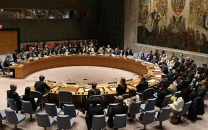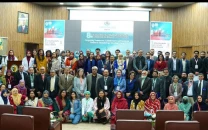Lack of functional local govt complicates khula cases
Lahore UCs issued over 11K khula certificates in 2021, rising yearly to 16K in 2024, govt records show

In Punjab, the country’s most populous province, the lack of a fully functional local government system has created serious challenges for women seeking divorce. Over the past five years, where the rate of khula has steadily increased, divorced women often face months of delay in obtaining their khula certificates from Union Councils (UCs) even after family courts have issued official decrees.
Punjab is divided into ten divisional headquarters where over 230 family courts are operational. Lahore alone has 30 to 35 family courts, with the city leading in terms of the number of active family courts, followed by Multan, Faisalabad, Rawalpindi, Gujranwala, and Bahawalpur. Despite receiving court verdicts, many women must wait extended periods for Union Councils to issue the necessary legal certificates, highlighting the pressing need for reform in the local governance structure of Punjab.
Samara Babar, who has been pursuing a khula for over two years—first through the Union Council and later through the family court, shared her ordeal. “For an entire year, the UC kept giving me the runaround. Sometimes the secretary wasn’t available, and other times the person responsible for serving notices was absent. Eventually, I filed a case in the family court, which issued an ex parte decision last month since my husband never appeared in court. If the local bodies were functional, I wouldn't have had to wander from office to office for a simple divorce,” she lamented.
Former Professor of Philosophy at the Government College University Lahore, Dr Javed Iqbal Nadeem, attributed rising khula rates to unequal distribution of household responsibilities and authority. “Though society claims to uphold equal rights for men and women, post-marriage dynamics often turn oppressive. When a man is employed, women tend to sacrifice their careers, but the reverse is rarely true. Educational disparity also contributes to marital conflict, as more women than men are pursuing higher education. Parents often marry off educated daughters swiftly to undereducated men, who struggle to cope. This leads to frequent disputes and, eventually, divorce,” said Dr Iqbal.
According to records obtained from the Punjab Local Government Department, Union Councils in Lahore alone issued over 11,000 khula certificates in 2021, over 13,000 in 2022, over 14,000 in 2023, and more than 16,000 in 2024. As of May 2025, over 3,800 certificates have already been issued. Records obtained by The Express Tribune revealed that Lahore tops the list of cities with the highest number of khula cases, followed by Faisalabad and Rawalpindi.
Advocate Mian Zeeshan Hanif Bhandara, who handles khula cases, confirmed a daily influx of divorce cases in family courts. “The number of khula petitions filed by women has doubled compared to divorce cases filed by men. Although we encourage women to think carefully before filing, in most cases, emotional and financial conflicts including demands for separate housing or disputes over property lead women to seek khula. A khula case typically takes six to nine months for court processing. If the opposing party does not appear, the court issues a unilateral (ex parte) decision in favor of the woman,” explained Bhandara.
Director of the Local Government Department, Muhammad Umair, explained that once a family court has issued a khula decree, the department sends monthly notices to the husband. “If no response is received within 90 days, the khula certificate is issued in compliance with legal requirements. In 95 per cent of the cases, the men do not respond at all,” revealed Umair.




















COMMENTS
Comments are moderated and generally will be posted if they are on-topic and not abusive.
For more information, please see our Comments FAQ